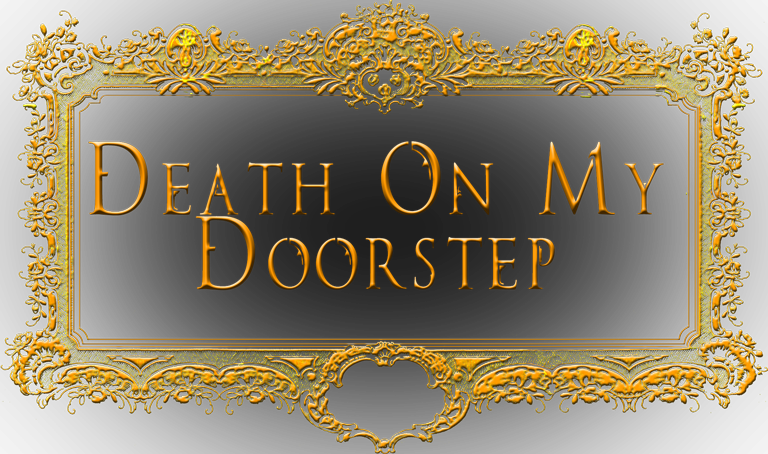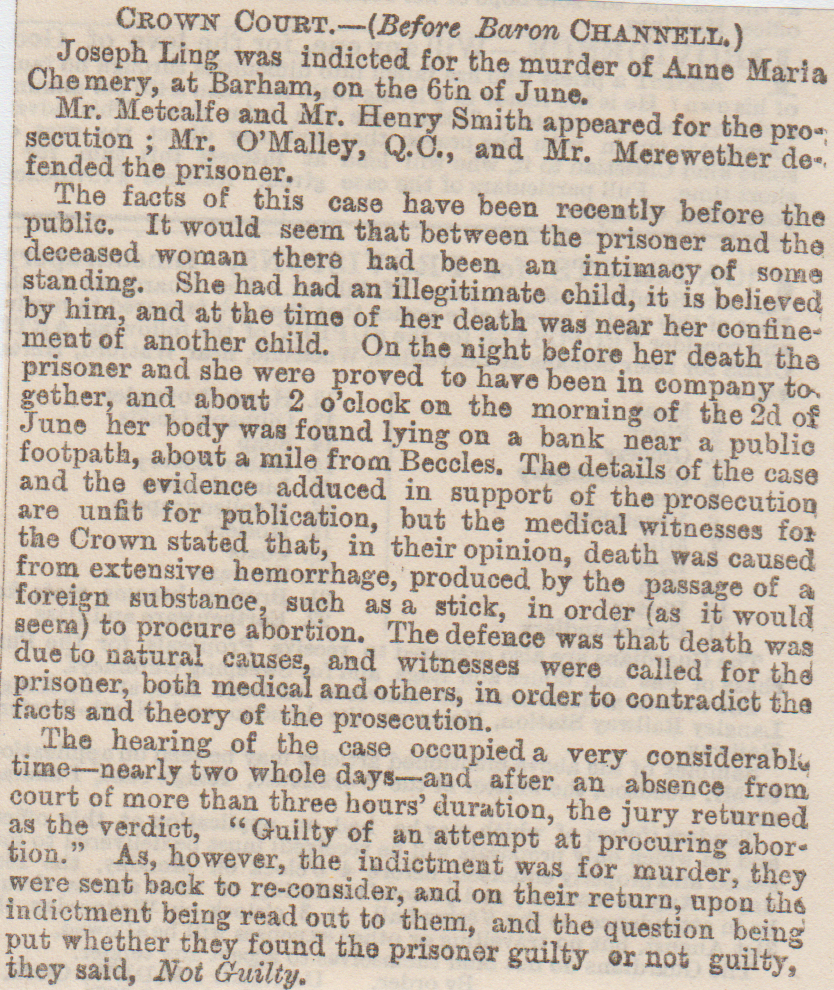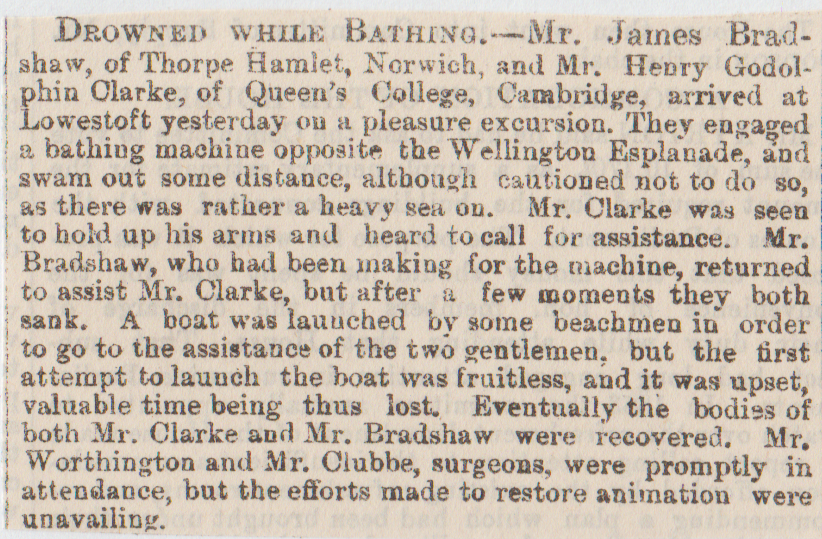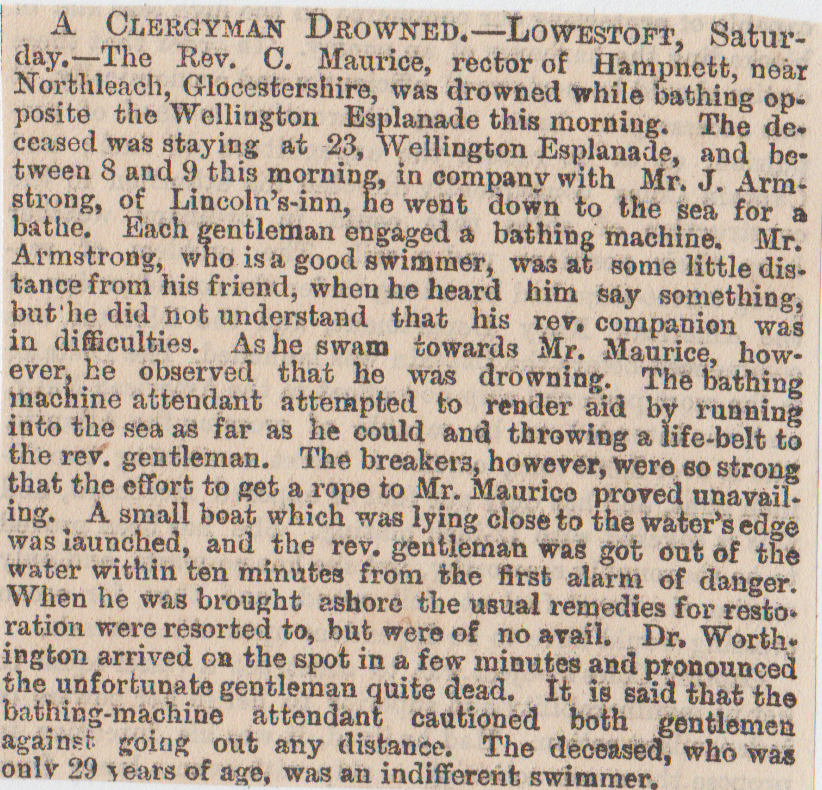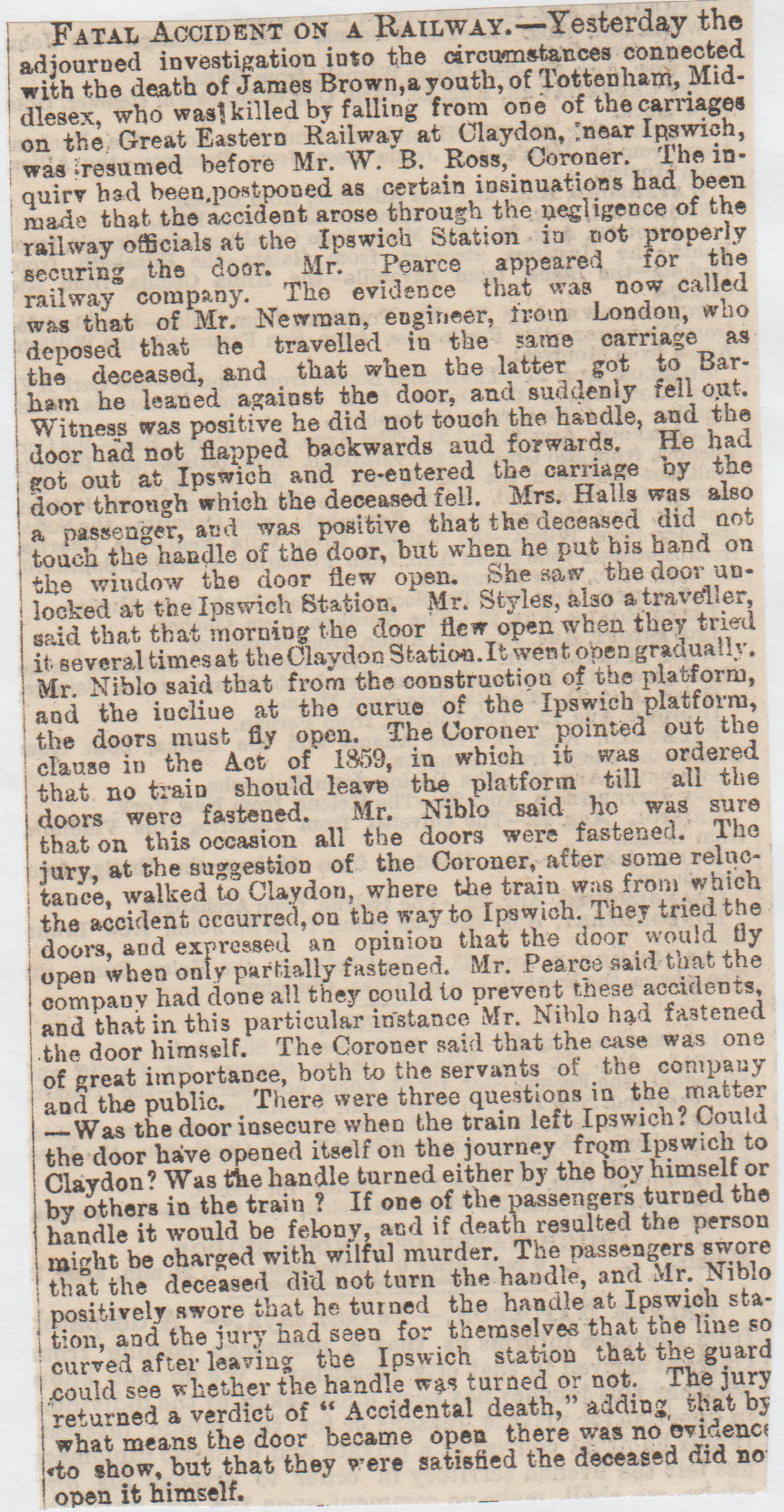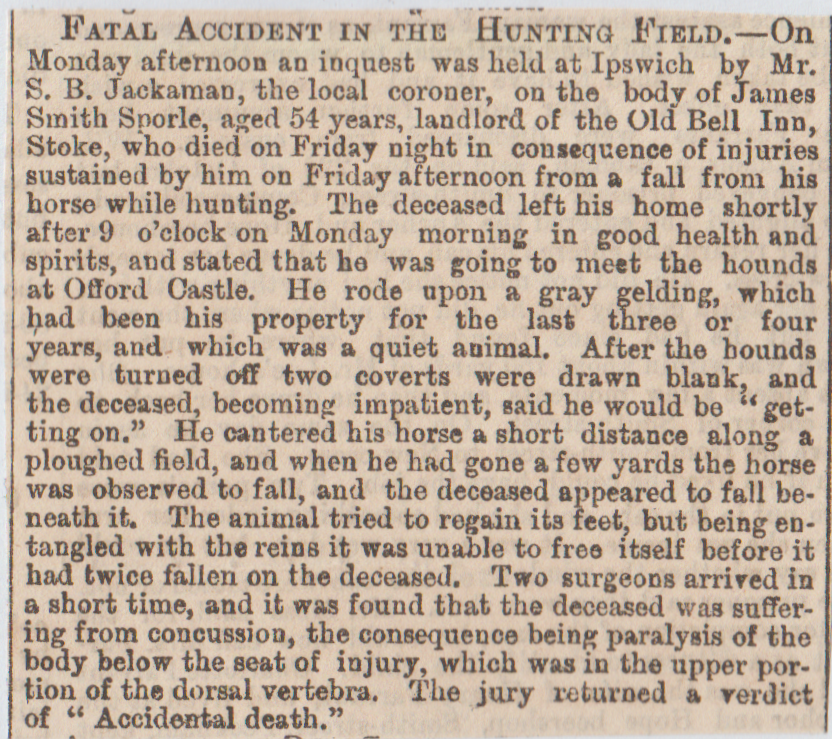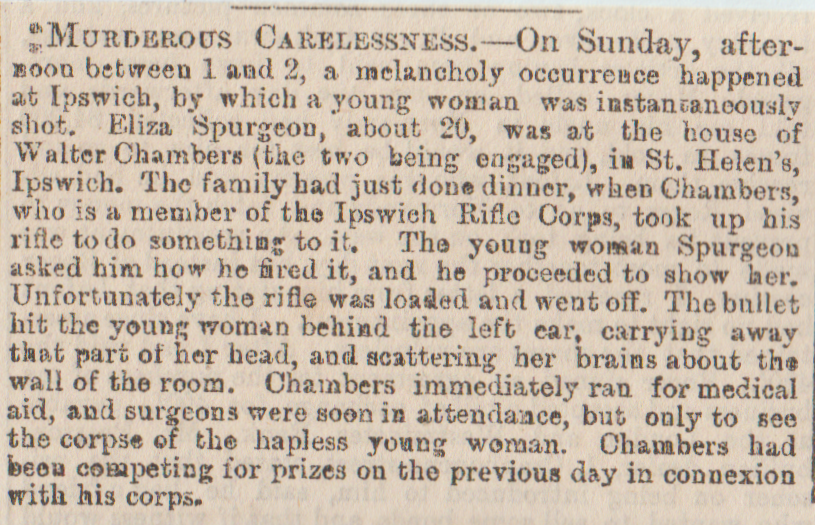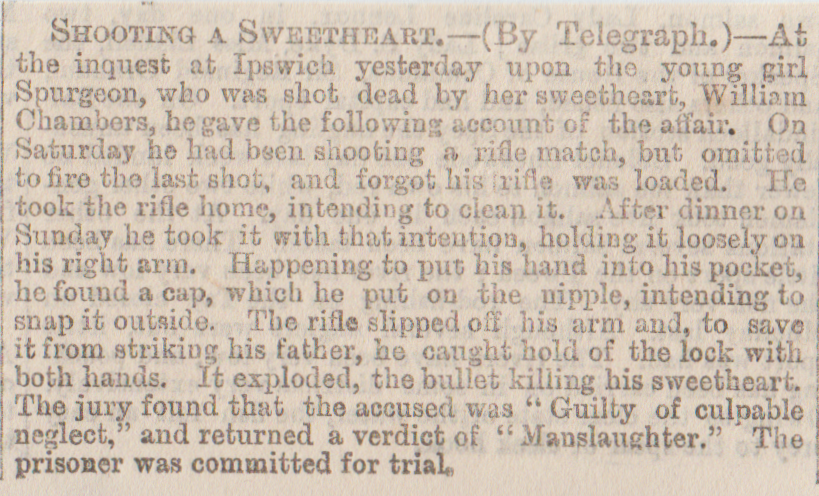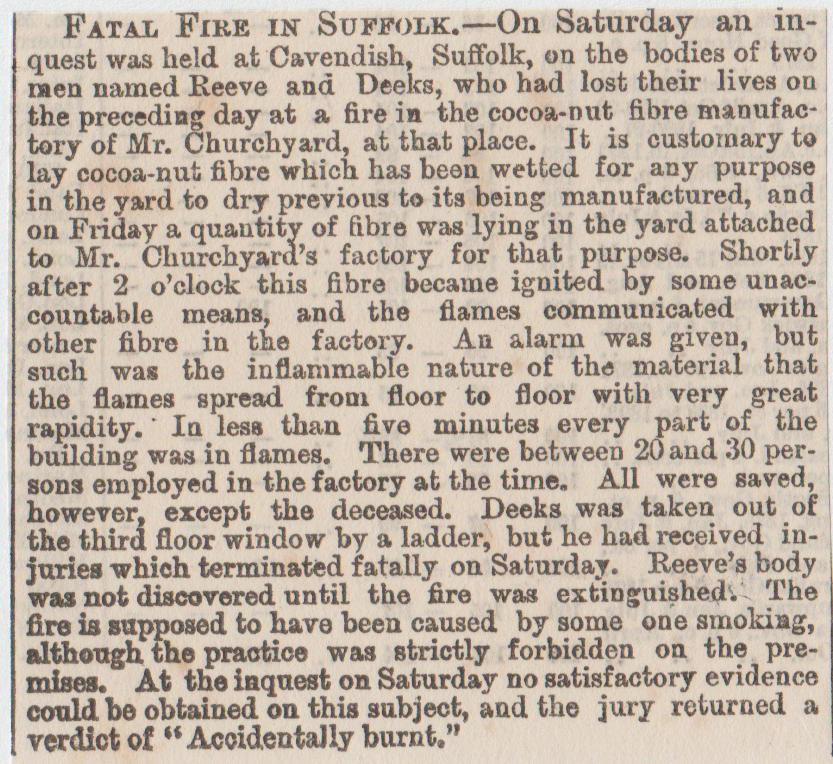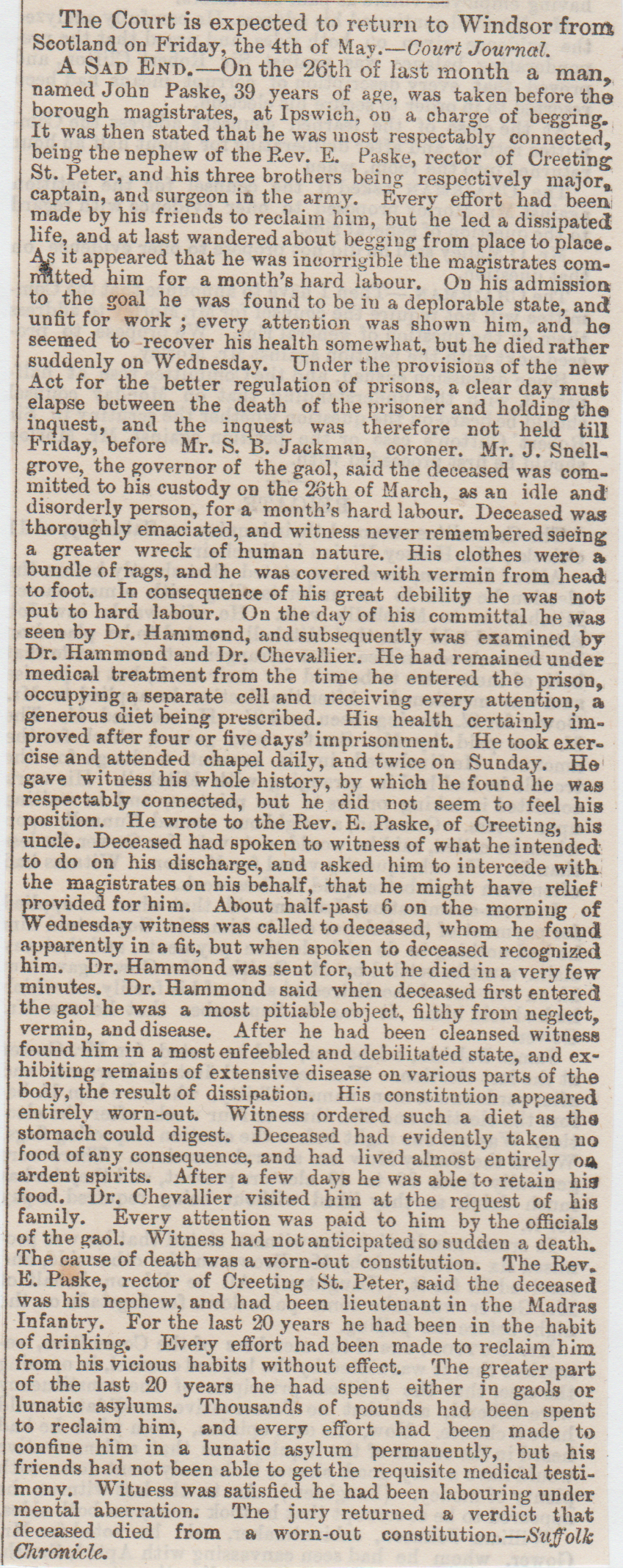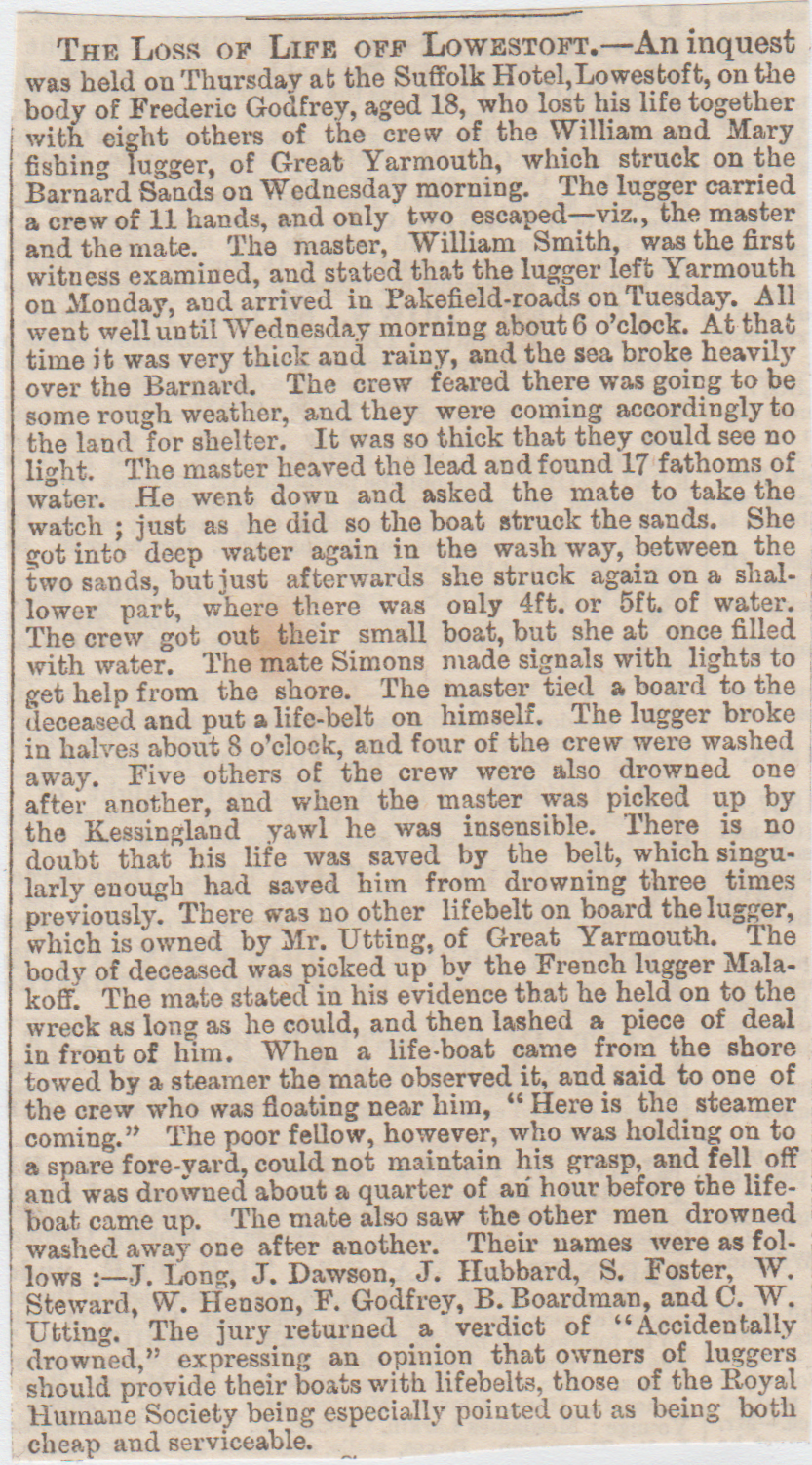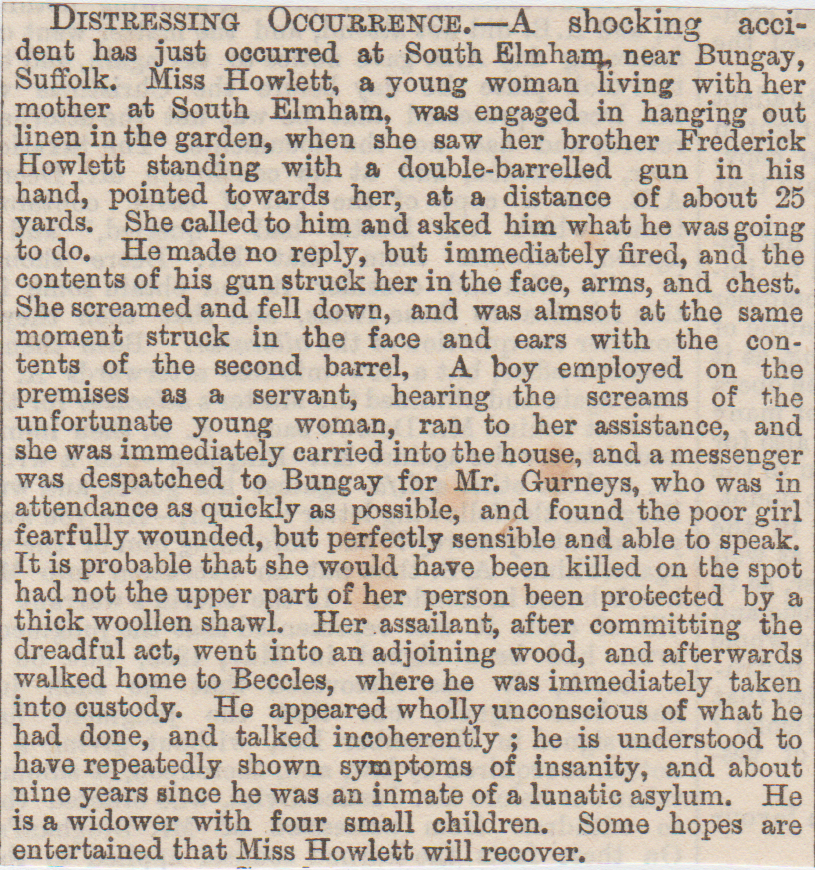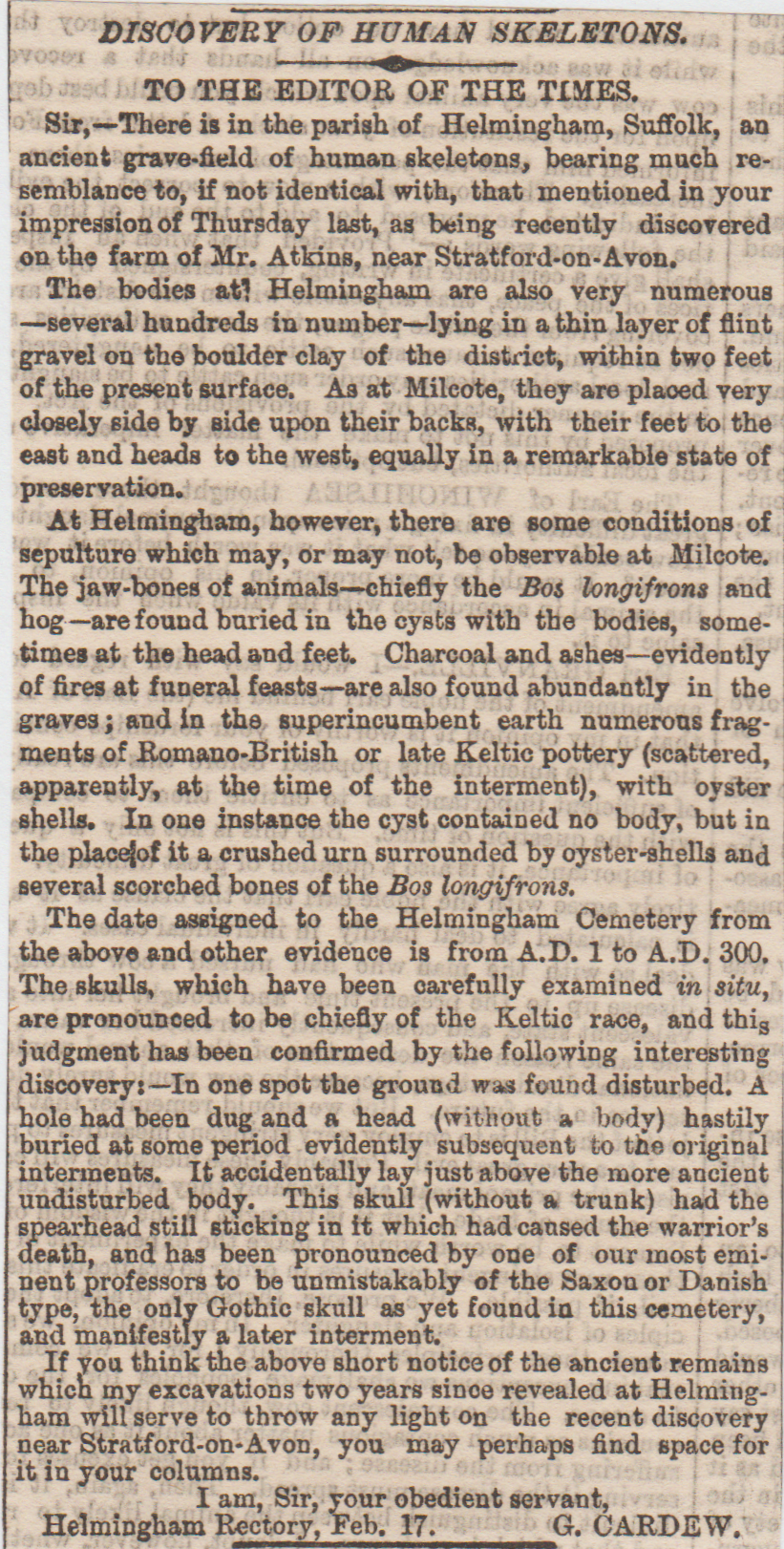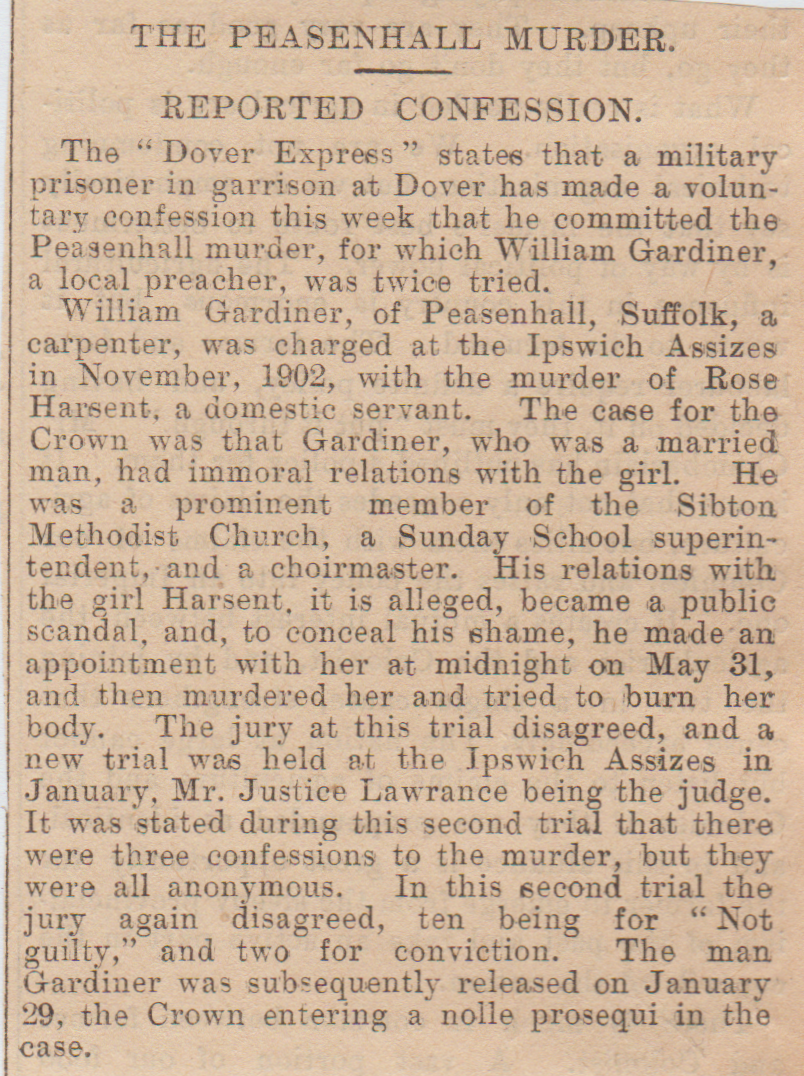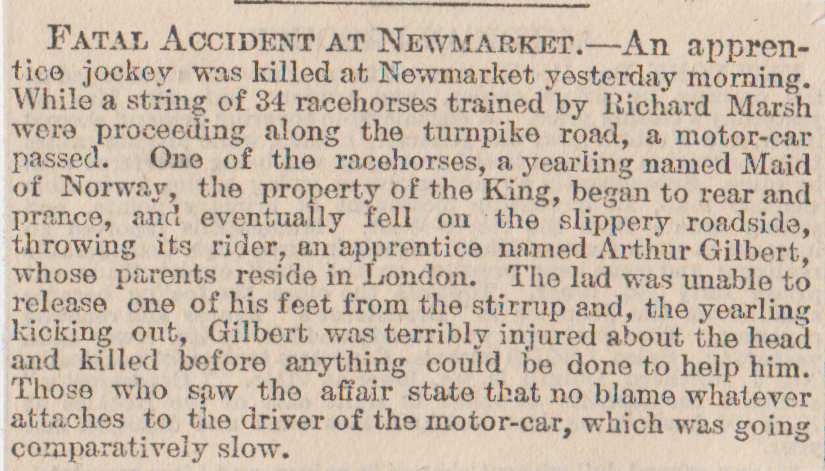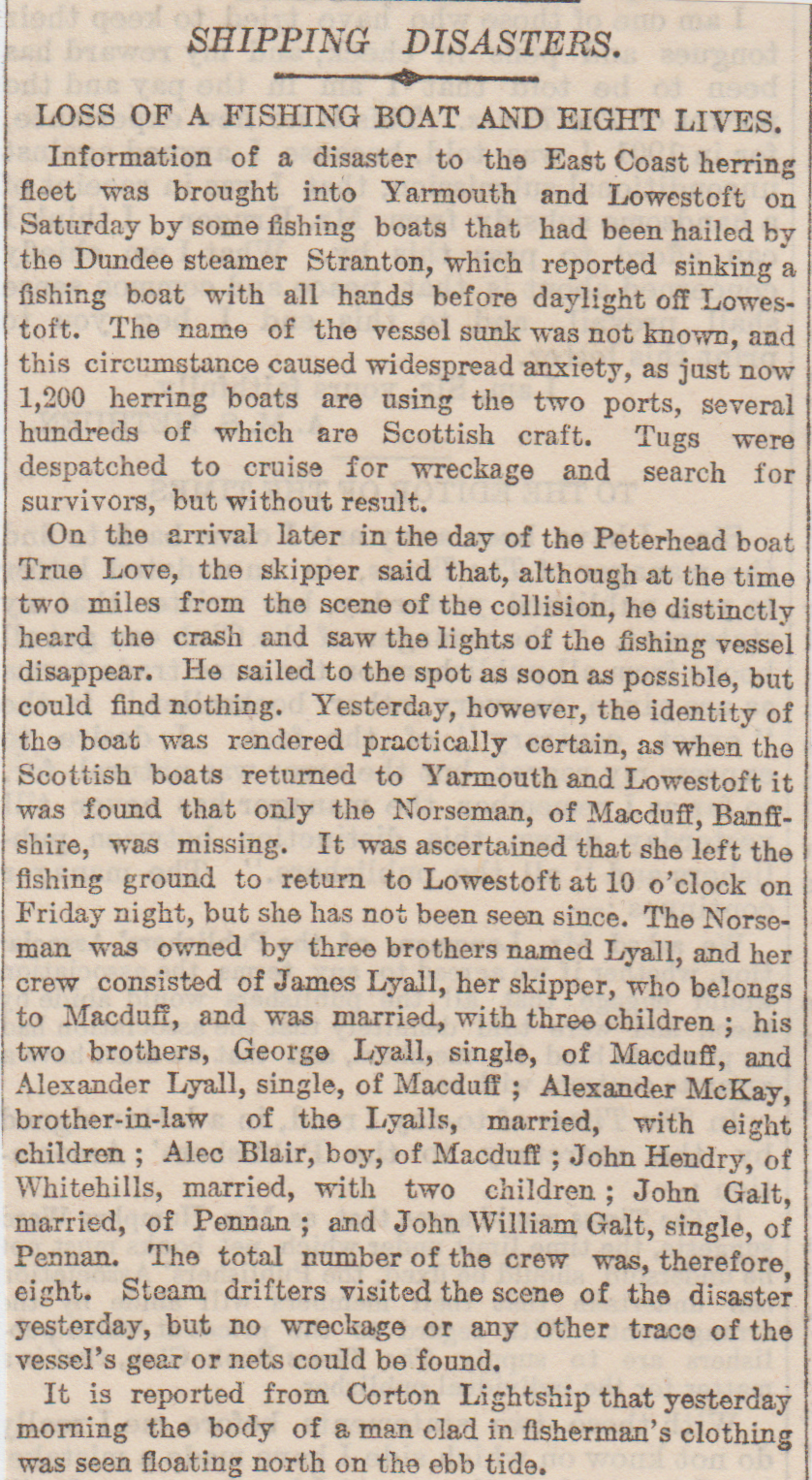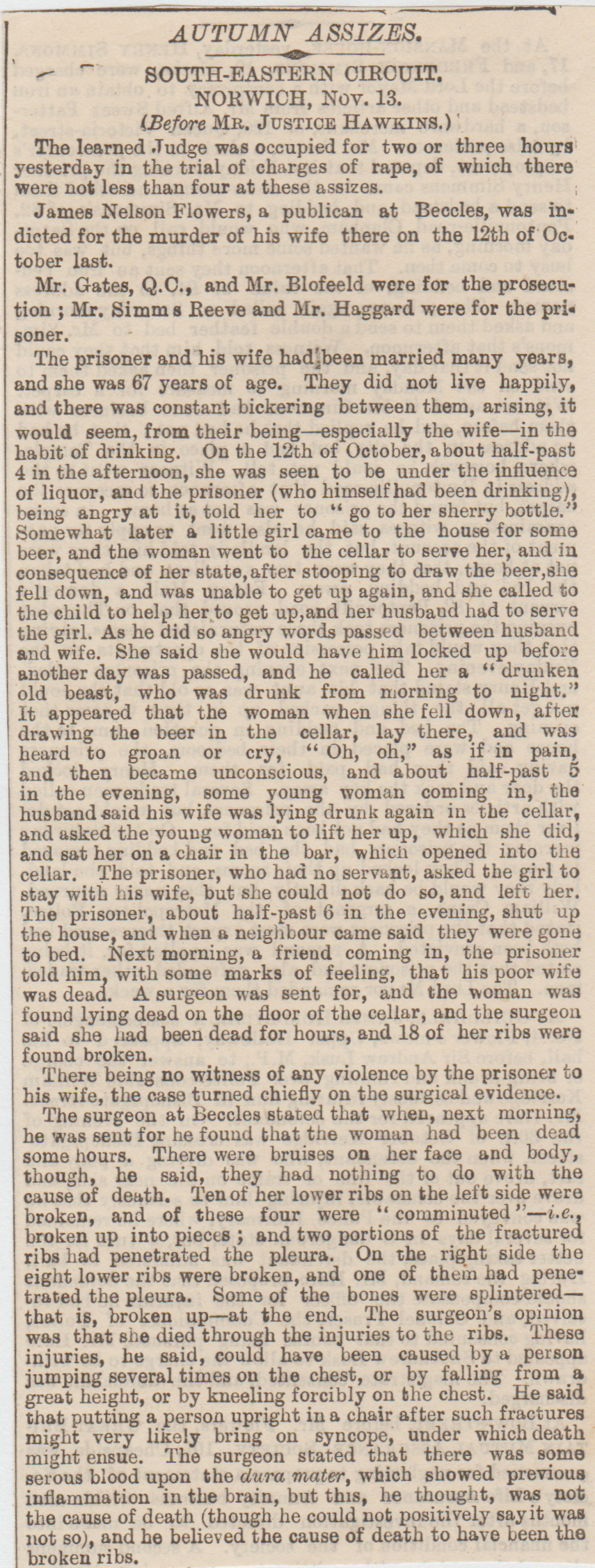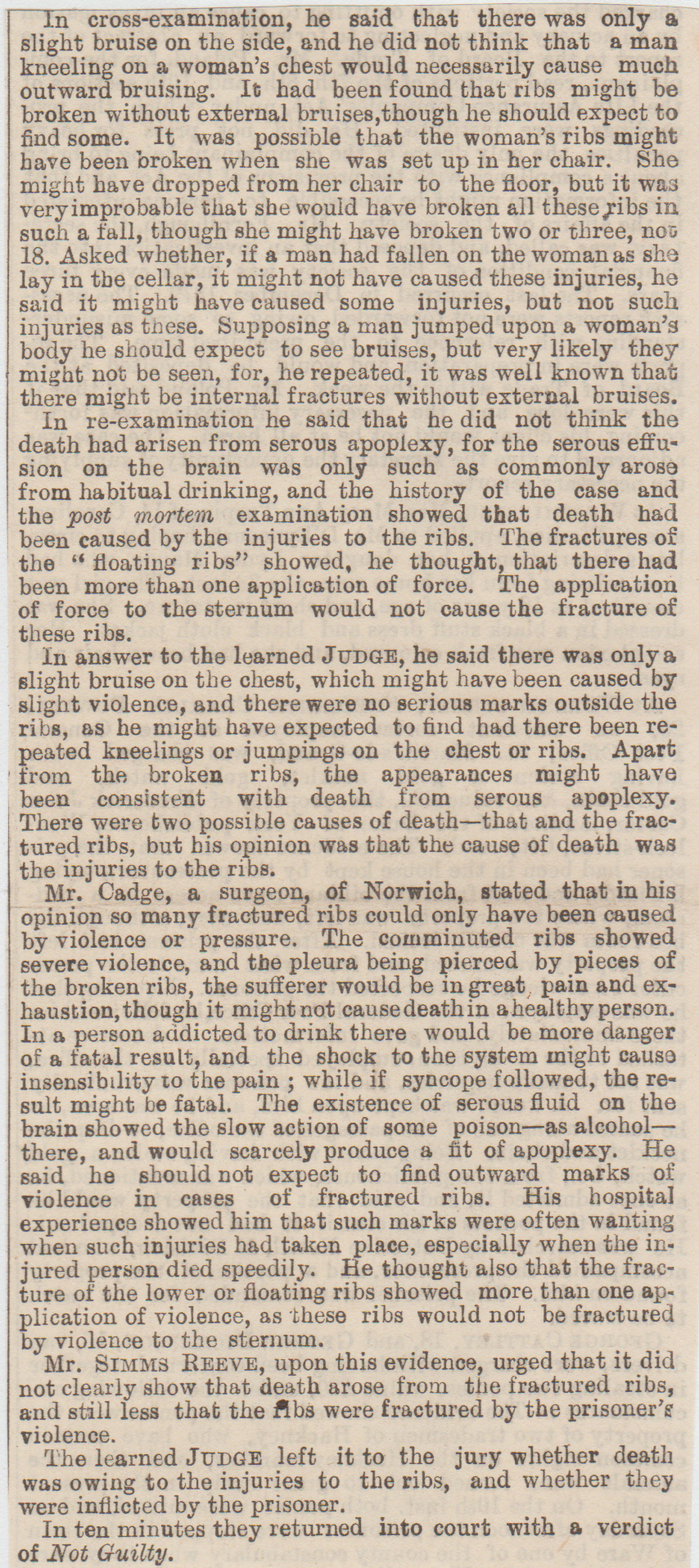1/ Henham Park, September 1844 (Two Gamekeepers Suicides)
This is a bizarre tale of two game-keepers who worked for one Earl, who killed themselves within a day of each other. Reports suggest that it was due “to their anxiety and dread of meeting their master, who was coming back from a trip to Ireland. Suicide or a telling off? He must have been a real iron-fisted dictator! Another suggestion was their love of their job and the game they preserved. Another of the Earl of Stradbroke’s gamekeepers has been restrained due to the recent occurrences.
2/ Foxhall Heath near Ipswich, April 1898 (Hanging Skeleton in Woods)
A boy was in a fir plantation on Foxhall Heath, when he came across the remains of a man hanging in a tree. It was clothed and facing the other way and the boy asked him to come down. The lad told a gamekeeper and he left it till the following morning. What presented itself was like something from a horror film. The skin was shrivelled and the clothes hung off him and it had been ravaged by various woodland creatures. Investigations came to the conclusion that it was the corpse of a man named Rose, a gardener from Woodbridge, who’d gone out a couple of years ago and simply vanished. It was positively identified by his son who recognized the trousers he was wearing.
3/ Suffolk General Hospital Suicide, Bury St.Edmunds, February 1872
The matron of Suffolk General Hospital in Bury St Edmunds, Miss Musgrove, committed suicide by throwing herself out of a window. She had already handed her notice in, but if you’re going to kill yourself, why bother? (Was it at the hospital?)
4/ Sudbury Suicide, April 1910
Mr Langdon J.P., the Mayor of Sudbury, was discovered in an out-house on his property with part of his head blown off. He asked a workman to take two guns to be cleaned, Langdon took another two, then sent the workman for a duster, during this absence a loud report was heard, so he rushed to the outbuilding and found him lying there with his head disfigured.
5/ Ipswich Barracks Murder, April 1895
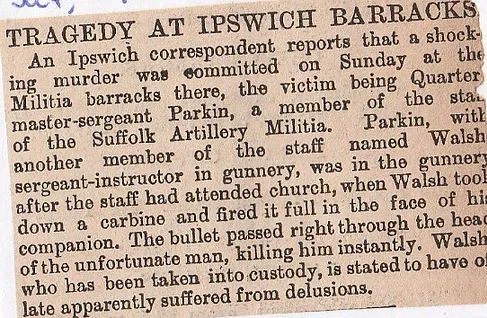
6/ Oulton Broad near Lowestoft, February 1901
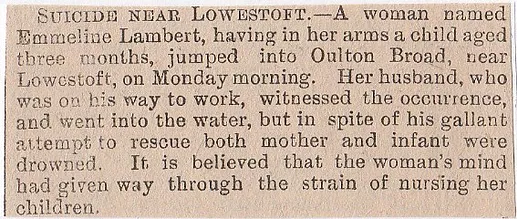
7/ Wortham Murder, near Eye, July 1899
A diabolical murder was committed in the village of Wortham, near Eye. James Dickson’s wife, Eliza went to the beer-shop(off-licence?) and was brutally slain. She was found on the common with her throat slashed and more cuts to her neck and face. A young man has been arrested and charged with murder. (Who was he?)
8/ Hundon (Octogenarian Suicide) February 1888
The Hundon postmistress, Mrs Hannah Potter, an 80-year-old widow, committed suicide by hanging herself. Apparently, she had near perfect sight and hearing but recently her memory had started to fail her. Could this be Alzheimer’s? One Sunday she went to church as usual, then called at a friend’s for tea, but the next day she complained of losing her purse with £2 in it. She took care of the incoming mail and sent out the outgoing one, then went upstairs, tied a handkerchief round her neck, and hooked it to a nail and hanged herself.
9/ Falkenham Double Suicide, January 1918
On returning home to Falkenham near Felixstowe, John Barham found his wife hanging from the bannister. She was dead. Later on, he was discovered at the bottom of a well. Their son was killed in action in France recently and this is what was thought to set the snowball effect into motion.
10/ Eye, (Fatal Shooting) June 1899
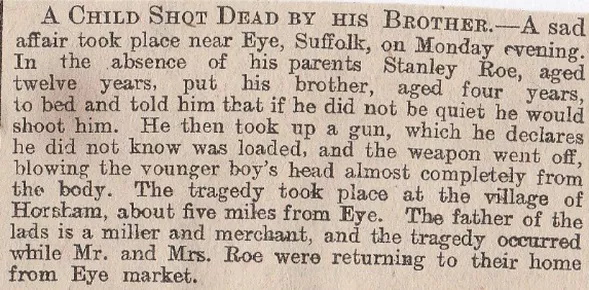
11/ Downham Hall (Dead Body Discovered) October 1841
The gamekeeper for Lord William Powlett of Downham Hall, Riches Dawson, went missing from home and was found four days later hanging by one leg, head down, from a notch in a fir tree about twelve feet from the ground. It is likely that he was at work and he climbed a tree one night to see how many birds were present, then got his foot tangled in the tree, passed out and consequently died. His hat and pitchfork were under the tree. The pitchfork was used to shake up the buckwheat for the pheasants.
12/ Wingfield near Harleston, December 1899
Two deaths have occurred at Wingfield near Harleston, one Lucy Gardiner, aged seventy-seven. The other, a child named Lily Collyer. The old lady and the child lived in a cottage which had no fire guard protecting the fire. It is supposed that Gardiner had a stroke and fell, causing flames to engulf them both. Dr Kirby said that the child was virtually roasted alive. It was judged to be an accidental death.
13/ Newmarket (Fly Poison) September 1870
A singular fatality has occurred at Newmarket. A woman named Cooper, housekeeper to Mr.W.Boyce was sitting near a table on which were some poisoned papers for the purpose of killing flies. A fly was seen to go into one of these papers and then to alight on the woman’s nose, which was slightly scratched. The wound speedily became inflamed and in a short time, her whole system became affected. Within 24 hours the poor woman was dead.
14/ Bentley Station/Ipswich, (A Mother’s Suicide) September 1885
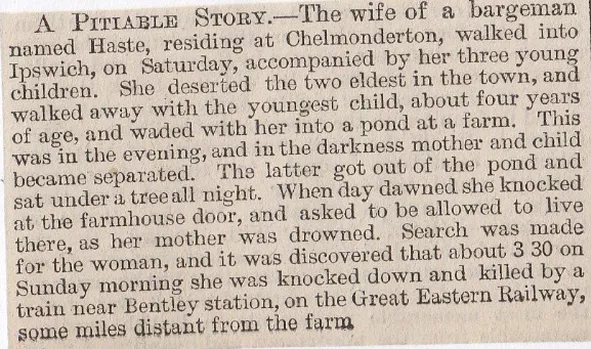
15/ Trimley near Felixstowe, January 1910 (Three deaths in one family)
Mrs Rouse, the wife of a villager, died suddenly around Christmas and then on the following Saturday, one of her kids passed away, then on Monday, another died. The father passed out in the street and was taken to Ipswich Hospital, where his condition is described as precarious. It is thought that they all got some kind of food poisoning over the festive period.
16/ Gislingham near Botesdale, August 1835 (Twenty-three poisoned)
Twenty-three people in the village of Gislingham have suffered the effects of arsenic poisoning, which had been mixed with flour, which was then turned into bread. Inquests have been held on those who ate the bread from time to time and have died. Who mixed the arsenic into the flour is unknown, but suspicion is fixed to one person in particular. (Who was that?)
17/ Friars Street Congregational Chapel Suicide, Sudbury, February 1883
71-year-old William Foakes was the keeper of the chapel at Friars Street in Sudbury. Just as the congregation were assembling one Sunday, Foakes was discovered hanging to a beam under the gallery. He had just had a charge of impropriety brought against him by a woman who is regarded as somewhat simple. The trustees were investigating and the pressure got too much for Foakes.(Is the chapel still there?)
18/ Lowestoft Wife Murder, December 28th, 1885
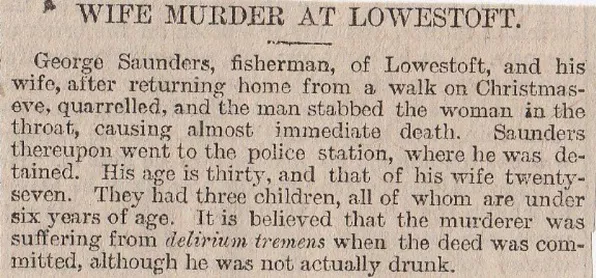
19/ Lowestoft Wife Murder, December 31st, 1885
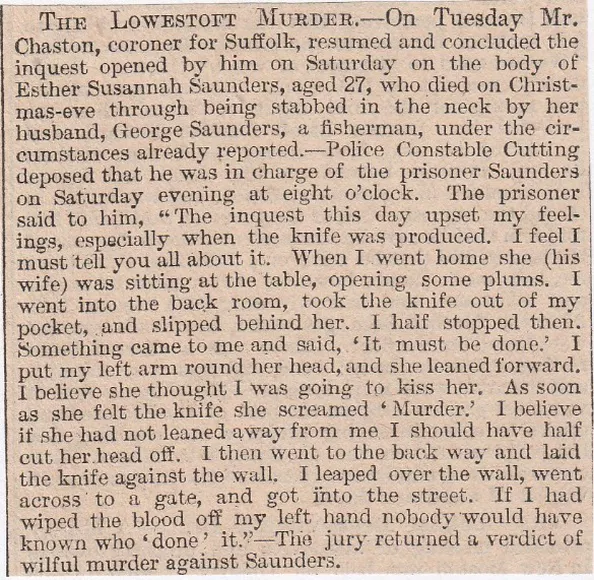
20/ Ipswich Gaol Suicide, February 1894
The warder in charge of Ipswich Gaol, Mr Groves, was doing his rounds on Monday morning when he got to the cell of George Woods. When the door was opened he flew out and went to the third landing. Groves ran after him but Woods reached the landing first and threw himself over, falling twenty-five feet. The prisoner was instantly killed, with this being the second suicide in Ipswich Gaol in a month. He wasn’t on suicide watch and he was only in for breaking into a shop.
21/ Great Cornard (Suicide Letter) April 1889
John Shave, a twenty-one-year-old, killed himself by drowning in the River Stour. He had been seeing a young lass named Hetty Bruce and they had been engaged for eighteen months or so and never had an argument. His back used to play him up and when he lifted some iron up about a year ago it gave way and he used to get painful spasms as a result. He left a letter, it read:
“My Darling- When you read this letter I shall be in another land far away. I have not the conscience to meet you again on earth, so I have done away with myself; but my own dear girl, I do not want you to fret at all about me, for I am not worth it. I am exceedingly so to think I hurt your feelings last night; the Lord knows. You asked me to forgive you, but it was me that wanted forgiveness, but I was ashamed to ask you. What few things you have of mine, keep, and say nothing about them. The little money you have of mine spend on yourself. I beg you not to let this trouble you, for I do not know what to do with myself and this is what I have chosen. Love to mother. I cannot ask you to accept my love, for I am not worthy of it. My darling, I wish you goodbye and God bless you. P.S.-If you want to find me, I shall be down by Lady’s Bridge”.
Miss Bruce didn’t know what he meant by “Hurting her feelings”, but he said that the landlord’s daughter of where he lodged had irritated him, but she wasn’t jealous of her. A portrait of Miss Bruce was found on him and when Miss Bruce was shown his body at the inquest at the inn, she grabbed hold of the body, hugged him and kissed him passionately.
22/ Barsham Murder (Not Barham) August 1870
23/ Lowestoft Drowning, July 1870
24/ Clergyman Drowns at Lowestoft, September 1870. (23 Wellington Esplanade, is on the corner of Claremont Road, opposite Claremont Pier)
25/ Claydon Railway Fatality, August 1870.
26/ Offton Hunting Fatality, November 12th 1870
Yesterday the Essex and Suffolk Hunt met at Offton near Ipswich. Among the field was James Spall, the landlord of the Bell Inn, Ipswich. About 2 o’clock the hounds having drawn several covers blank, several members in the hunt were standing still, when Spall said he was cold and must be moving. He put his foot to his horse to start when it gave a sudden plunge and fell, rolling over its rider, and in trying to rise it fell twice upon Mr Spall, who was killed instantaneously.
November 16th, 1870. (The Inquest)
27/ Ipswich Woman Fatally Shot, October 11th, 1870
October 13th, 1870. (The Inquest and Verdict)
28/ Suicide from a Steamer, Southwold. February 1866
The master of the steam trader Rainbow, which plies between London and Great Yarmouth, reported on his arrival at the latter port on Sunday that at about 5 a.m. a gentleman who had taken a passage from the London-wharf had been missed at Southwold, Suffolk. It is believed the passenger committed suicide. /he was about seventy years of age, wore a beard, and was about 5 feet 10 inches in height. He wore a light skull cap, dark coat, and light trousers, and he left on board the steamer a hat and great coat, the latter containing a purse with five shillings in it and various other articles, which are now in the presence of Yarmouth police.
